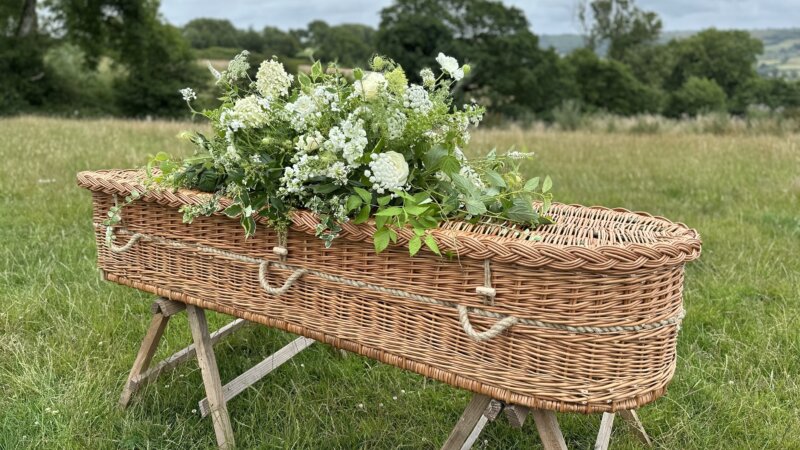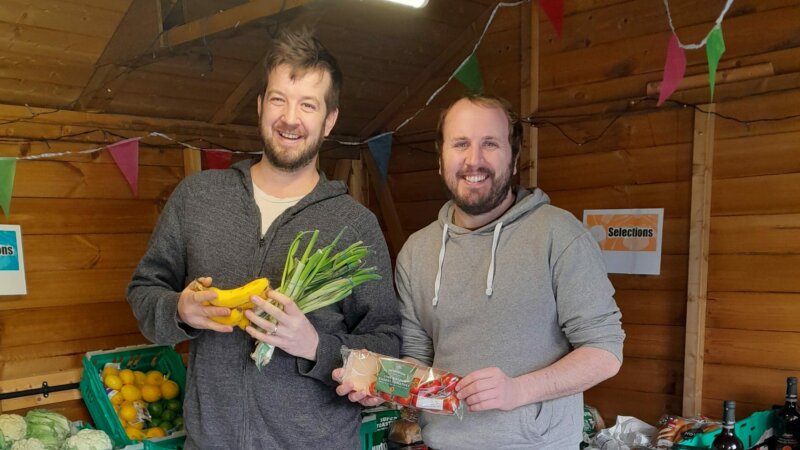Francesca Martinez: How To Create A Better World
Francesca Martinez is a comedian, writer, actor and activist. She tours globally and wrote the hilarious and utterly relatable What The **** is Normal?! in 2014. She has cerebral palsy, but prefers to describe herself as ‘wobbly’, because that is far more accurate and far less clinical. She is currently writing a play.
This year, Francesca was invited to be guest curator for Sheffield’s Off The Shelf Festival, for which she has put together a day-long event, where she and her guests will explore the theme of How To Create A Better World.
What made you take up the offer to guest curate Off The Shelf?
I had a really good time when I spoke at the festival in 2014 and got a really good crowd in, so when they asked me, I loved the idea of having the ability to design a day’s events. It’s slightly different from what I normally do. They said, ‘You can do whatever you want’, which was very trusting of them. I felt they really were interested in letting me design an event, rather than prescribe what they wanted or what they thought I should be doing. It was really refreshing to get that level of freedom.
What led you toward the strong element of activism in your work more recently?
I’ve been lucky to meet some really incredible, inspiring people over the last few years. I’d always been engaged, but not so directly. That’s been a big learning curve. I think it’s quite normal to be in a culture where a lot of people care about the wider issues, but can feel helpless or apathetic or not have the confidence to change anything. So when you get into circles of people who feel proactive and say they can make a difference, it’s very eye-opening. I still feel kind of a newbie about the background behind different theories and mindsets, but I’m really interested in learning more, and also in finding ways for my work to have that impact. That’s my ultimate aim.
The first event is How to Create a Better World… Through Art, starting with a screening of Ken Loach’s I, Daniel Blake. How would you describe the way art helps to create a better world?
The number one role art can play is humanising people’s stories and creating empathy in others toward a stigmatised group. Secondly, I think it can elicit strong emotions that may become the starting point for someone to go, ‘You know, I want to go and do something.’
We’re following the film with a panel discussion with Amir Amirani and James Meadway. Amir directed We Are Many, about the protests and decisions that led up to the Iraq war. He’s a great example of someone who’s spent his life trying to do socially valuable work and highlight the issues that go unlooked-at by a lot of society. James Meadway is an amazing economist, who I’ve spoken with and seen speak many times. He’s a really great communicator – austerity isn’t about money, it’s an ideology. So he’s going to give us an angle on how austerity is bad economically.
After that you’re hosting a session called How to Create a Better World… Through Compassion, with Marina Cantacuzino. Her work sounds fascinating, but very challenging. What drew you to her?
I read her book [The Forgiveness Project] last year and it was one of the most incredible books I’ve ever read. It was so powerful it was hard not to burst out crying. Every page you get a victim of a horrific crime. You get their account and then you get the murderer’s account. They’ve found peace by forgiving horrific acts. I remember someone in the book saying about punishing the man who had tortured her, ‘I didn’t want to be the source of more pain and hatred in the world.’ That has implications for our justice system, and wider implications for society in how we look at and deal with pain and grief. What struck me was that forgiveness could be a healing tool, because forgiveness is often associated with religion or is shown as a weak act. But for many of these people it freed them, and also allowed the criminal to develop and move on. The way to peace and freedom wasn’t through hatred and bitterness, but through love and empathy.
You’ve focused on the positive in your own work. I know you did a TED talk about being happy as a political act. Can you talk more about that? Do you ever find it helpful to express anger in your own activism?
I think that in a society that focuses on self-loathing and dissatisfaction and self-confidence issues, being happy is a political act. I don’t think we’re encouraged to be happy or to like ourselves or to feel like we can change anything. I feel, on vary basic personal level, that if you stand up to that, if you say, ‘I am good enough, I can change things,’ you’re not buying into the dissatisfaction and disempowerment that is bred incessantly in the media and in politics.
Politicians say people are disaffected or apathetic, but we aren’t. That’s what they want us to feel. If you think about why, the driving force of our society is consumerism, and for that to work we have to buy into the lie that we’re not good enough as we are, so we have to go out and consume. I try to challenge that on a basic level. It’s also a positive step for the wider society, because it’s very hard for people to do anything outwardly if they don’t have some level of self worth.
I had to reclaim my childhood self worth and confidence. I felt I had to reject society’s values and definitions and make up my own. Accepting yourself as you are is a form of civil disobedience. Everything around us tells us the opposite.
The third event looks directly at being proactive. It’s called How to Create a Better World… Through Action, and your guest is John Rees, who co-founded the Stop The War Coalition. How can different activist communities support each other?
So often we’re all so divided. This is not a simple, glib answer, but it’s really important to reach out to different communities. Bring disabled activists into a march or a demo or into an event on austerity. Give people a voice, allow them to represent themselves. Try not to have only middle-class, white, able-bodied people on a panel. The left really has to address this. The left also has to address its tendency to be so disparate. People are quick to judge and criticise. I understand where this comes from, but we really have to get together and focus on what binds us.
This is what the day for Off The Shelf is about. I’m really interested in looking at how we build those bridges. How do we build the movement, come together and not just stay within our small groups? Ultimately, it’s not going to be helpful to stay divided. But all this will be discussed. I certainly don’t have the answers, but I hope the day will be an interesting discussion of these topics.
How To Create A Better World takes place on Sunday 6 November, 1:30-8pm. Tickets are available at offtheshelf.org.uk. )





